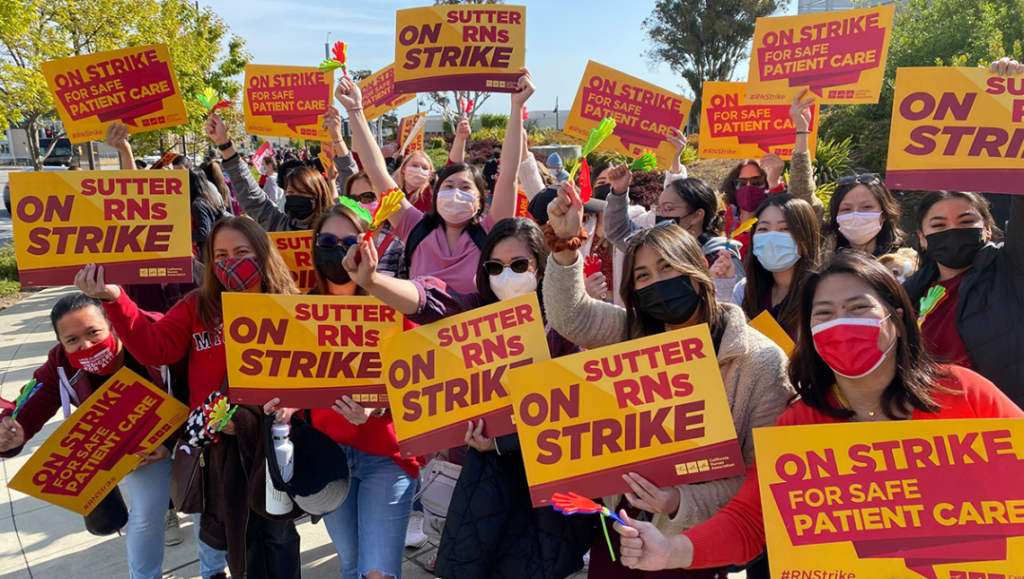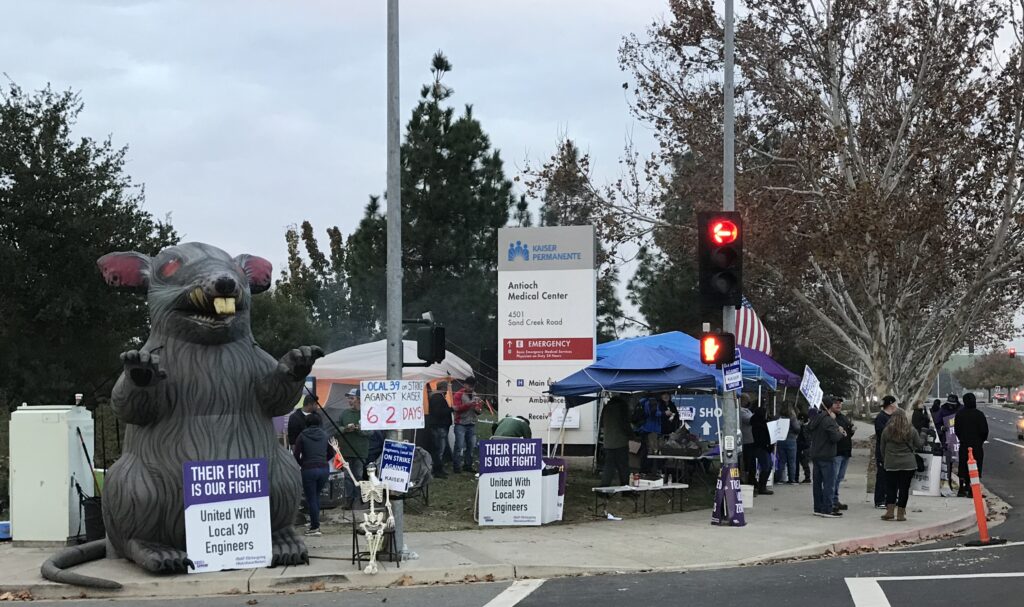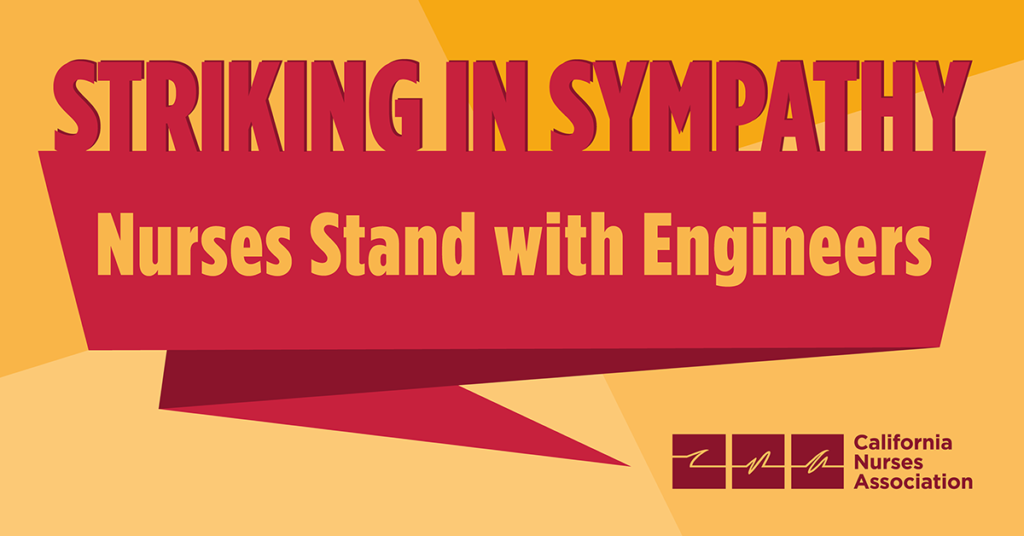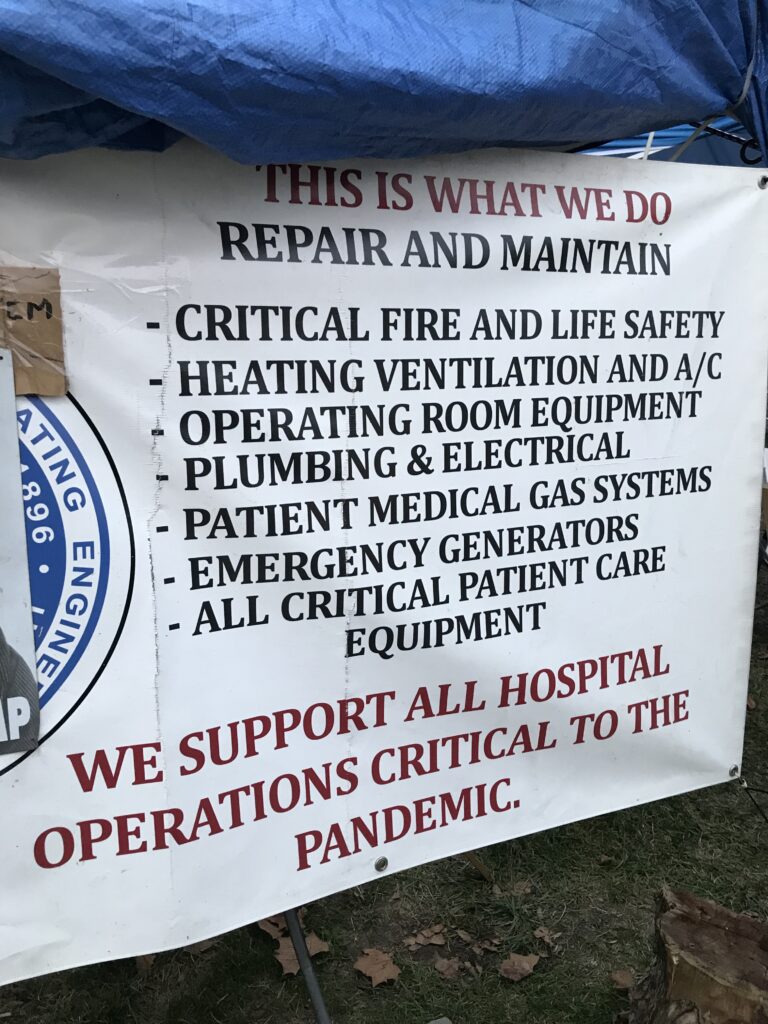Nurses, health care workers hold one-day strike at Antioch’s Sutter Delta Medical Center Monday
Monday, April 18th, 2022
Photo: CNA
More than 8,000 participating in strike at 15 Sutter facilities for safe staffing and health and safety protections; Sutter Health responds
By Allen D. Payton
The California Nurses Association (CNA) and CNA affiliate Caregivers and Healthcare Employees Union (CHEU) announced on the National Nurses United website on April 8, that “Nurses and health care workers at 15 facilities across Northern California will hold a one-day strike on April 18 to protest Sutter Health’s refusal to address their proposals about safe staffing and health and safety protections.” The CNA is an affiliate of National Nurses United. The list of facilities includes Sutter Delta Medical Center on Lone Tree Way in Antioch.
This notice follows nearly unanimous strike authorization votes in March. Nurses and health care workers have given advance notice to Sutter Health for the strike. More than 8,000 registered nurses and health care workers are participating in the strike.
Sutter Health RNs and health care workers have been in negotiations since June 2021 for a new contract, with little to no movement on key issues. They urge management to invest in nursing staff and agree to a contract that provides:
- safe staffing that allows nurses to provide safe and therapeutic care and
- pandemic readiness protections that require the hospitals to invest in personal protective equipment stockpiles and comply with California’s PPE stockpile law.”
“The Sutter nurses voted for this strike,” said Renee Waters, a Trauma Neuro Intensive Care RN with 26 years of experience. “We are striking because Sutter is not transparent about the stockpile of PPE supplies and contact tracing. They resist having nurses directly involved in planning and implementation of policies that affect all of us during a pandemic. We must address these issues and more. A fair contract is needed to retain experienced nurses, have sufficient staffing and training, and ensure we have the resources we need to provide safe and effective care for our patients. Nurses are fighting back against Sutter putting profits before patients and health care workers.”
“Nurses overwhelmingly voted to go out on strike because we see no other option left for us and our patients,” said Amy Erb, RN , who works in Critical Care at California Pacific Medical Center. “We have tried repeatedly to address the chronic and widespread problem of short staffing that causes delays in care and potentially puts patients at risk, but hospital administrators continue to ignore us. We have a moral and legal obligation to advocate for our patients. We advocate for them at the bedside, at the bargaining table, and if we have to, on the strike line.”
Nurses and health care workers will be picketing from 7 a.m. to 11 a.m. and 2 p.m. to 6 p.m.
Sutter Health Responds
Emma Dugas, Media Relations Coordinator with Sutter Health offered the following response from the healthcare organization late Sunday afternoon:
“Despite resuming negotiations with the involvement of a federal mediator, the California Nurses Association (CNA) has refused to call off their strike beginning 7 a.m. Monday. Work stoppages at 18 of our sites – even for a single day — require complex and costly preparation, and obligate us to make plans that our teams, patients and communities can rely on. Given the uncertainty of a looming strike, and in order to provide surety for our patients, communities and care teams, we will staff our hospitals on Monday with the contracted replacement workers where needed. We hope the CNA union will call off this strike so our nurses can return to work and do what they do best — care for our patients. We remain committed to continue bargaining as long as negotiations are progressing effectively toward averting the strike.”
Dugas provided an additional statement from Sutter Health on Monday:
“By moving forward with today’s costly and disruptive strike, union leadership has made it clear they are willing to put politics above patients and the nurses they represent – despite the intervention of federal mediators and our willingness to bargain in good faith while under threat of a strike. Our attention is on providing safe, high-quality care to the patients and communities we’re honored to serve. We are confident in our ability to manage this disruption. We are hopeful CNA shares our desire to reach an agreement and enable our nurses to turn their focus back to the patients the union has asked them to walk away from.”
Dugas also provided a Labor Fact Sheet dated April 2022 from Sutter Health with the following information:
“SUTTER HEALTH’S INVESTMENTS & COMMITMENT TO EMPLOYEES
Sutter Health is consistently recognized as one of the region’s best employers and a leader in providing safe, high-quality care for more than 3 million patients each year. The two go hand in hand: our caregivers provide exceptional, compassionate care for our patients, and we are dedicated to recognizing, investing in and supporting them.
PROVIDING COMPETITIVE PAY & BENEFITS
We know the quality of care we deliver is made possible by the dedicated clinical and professional teams across our integrated network. Sutter provides competitive wage and benefits packages that recognize employees’ hard work and support their total well-being. A nurse who chooses to work full-time at Sutter hospitals with CNA contracts receives generous benefits, including:
Competitive Salaries: An average of more than $140,000 (or more than $81/hour). The average annual wage for California nurses in 2021 was $124,000 (U.S. Bureau of Labor Statistics).
Employer Provided Healthcare Coverage: Access to comprehensive healthcare coverage for employees and their families — provided at no or low cost to staff.
Paid Time Off: Up to 41 paid days off annually and access to extended sick leave, as well as short- and long-term disability leave.
Retirement Benefits: We are proud to offer our employees several benefit plans that help our workforce plan for their retirement. For those employees participating in our cash balance pension design, we have proposed enhancing the earned interest that Sutter contributes to employees’ cash balance pension balance each year starting in 2024.
Career Development Support: Coursework, coaching, hands-on experience and other support for nurses seeking stability and growth over the course of an entire career.
Voluntary Benefits: Critical illness, supplemental life insurance and legal plans that provide essential resources when it’s needed most.”
See more details from Sutter Health’s Labor Fact Sheet, here: Sutter Health Labor Fact Sheet April 2022

















 In response to the planned healthcare worker strikes beginning today and tomorrow, Thursday and Friday, Nov. 18 and 19, Kaiser Permanente issued the following statement:
In response to the planned healthcare worker strikes beginning today and tomorrow, Thursday and Friday, Nov. 18 and 19, Kaiser Permanente issued the following statement:













